UK Vessel – Over and Out…
UK survey run-down
By Claire Lacey (Cruise Leader)
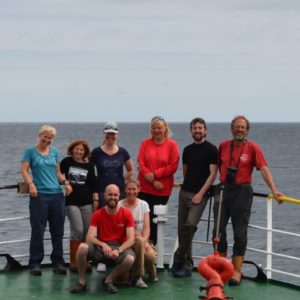
The more avid readers amongst you will have noticed that updates from the UK vessel have been coming in fits and starts- our apologies for this – our internet connection has been having problems so we’ve had to save them all up to post at the end. That means, you’ve guessed it as you are reading this one online, that we have now reached the end of our 6 week survey cruise.
It has been an interesting trip; we started in the cold northern waters to the north and west of the Hebrides, and worked our way south, conducting our final few weeks in the (comparatively) warm climate of the Bay of Biscay. This geographic range has yielded a good range of species seen over the course of the survey too – from the harbour porpoise, which rarely exceeds 1.8m in length- to what was probably the trip highlight for many people on board – the blue whale – which can exceed 25m in length in the northern hemisphere.
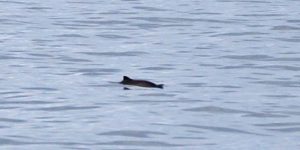
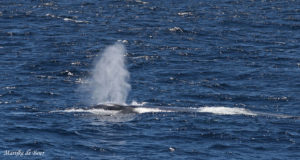
Prior to the appearance of the blue whale on our very last survey day, the accolade of “trip highlight” had been awarded to a fin whale. We’ve seen many of these whales in both the northern and southern parts of the survey- but nothing really prepares you for the sight of a 20m long animal leaping from the water. As well as being a spectacular sight on its own- this also provided a view of the amazing colouration of these animals, which is often not visible from the surface.
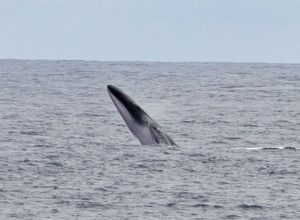
In case you were wondering – they make quite a splash
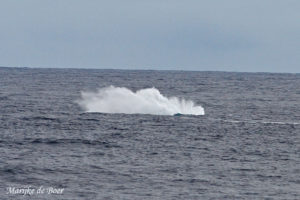
The more usual view of a fin whale…
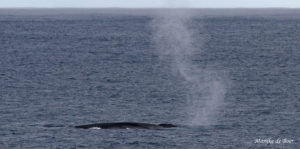
A trip “special mention” should probably also go to the humpback whales we saw. They weren’t really expected to make much of an appearance during our survey, but they were a welcome sight nonetheless.
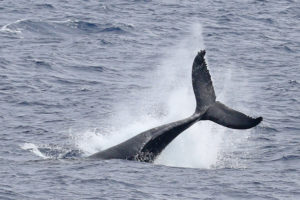
It has been interesting to note the change in dolphin species observed as we worked our way south. To begin with, we were seeing mainly white-sided dolphins, occasionally mixed in with a few oceanic bottlenose dolphins as well. The white-sided dolphins are quite shy of the boat, and despite having a large number of keen photographers on board, we have no photos of these to share with you!
As we worked our way south, we start to see common dolphins. This species is notorious for bowriding and come charging in to the vessel. They didn’t seem to like the Skoven very much though – perhaps our hull was the wrong shape to create the pressure wave required for bowriding to work properly?
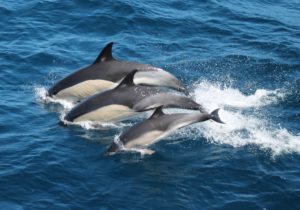
As we headed further south still, we started seeing striped dolphins as well as the common dolphins. Less keen on the ship, these dolphins are either very easy to spot, or very difficult, depending on their activity. When travelling they stay very low in the water and you don’t get much of a view at all- until that is they start to leap. When they have a mind to be, they are incredibly acrobatic, and produce a display you just can’t miss.
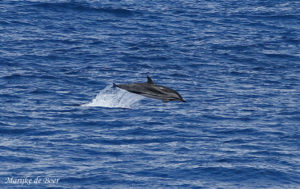
Our final sighting of the trip came as we were cruising along the south coast of England, heading back in to harbour. The survey had finished, but the people standing on deck to enjoy the evening view (and make use of the phone signal) were treated to a good view of white-beaked dolphins which came in to check out the boat. They seemed to be of a similar opinion to the common dolphins however, as they didn’t stick around long.
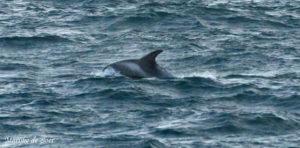
Enormous thanks to the fantastic team aboard the good ship Skoven – it was hard work, but worth it. Now we just need to get on with the data analysis…
